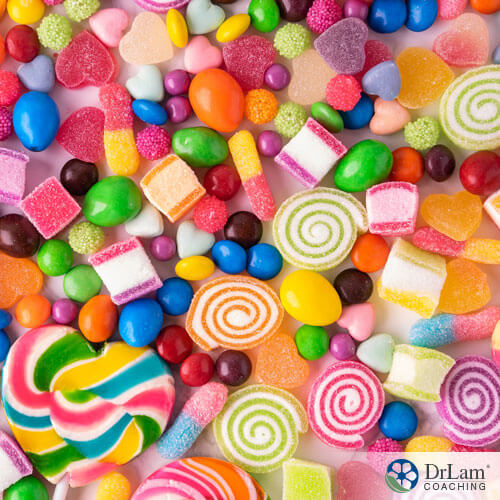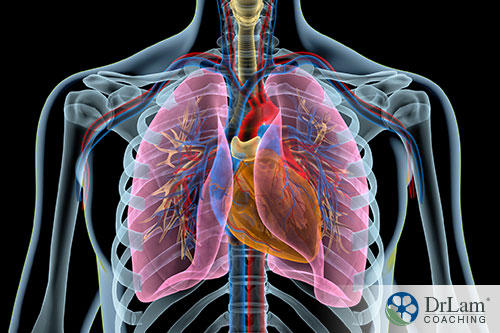Before you reach for that artificially sweetened soft drink, there’s something you should contemplate - is that sugar-free soda you’re about to drink really good for you? Does it offer you great benefits for your weight loss program? There‘s a great deal of controversy these days on the subject of sugar versus artificial sweeteners, and you should make sure that you are well informed before you decide to make a choice between the two.There are quite a few studies that have been carried out, that reveal the harmful effects of additives and this will have you rethinking about what you should add to your morning coffee. We now have evidence that suggests that there are cardiovascular risks of artificial sweeteners in beverages that need to be addressed.
Artificial sweeteners are synthetic, non-nutritive chemical substances that are used to sweeten foods and beverages. They are now used everywhere adding their sweet artificial flavors to food items such as:

Although many people are unaware of their presence in these foods, others use artificial sweeteners intentionally to reduce the sugar and caloric intake in their diets. They are specifically buying food items labeled “ sugar-free” or “diet” to lose weight or control diabetes. However, what may sound like a good choice right now, might actually have severe health side effects in the long term.
Some names of artificial sweeteners include:
Artificial sweeteners are sweet, with an attractive flavor. It has fewer calories than table sugar, corn syrup, and fruit juice concentrates. These sweeteners are very popular, because they have fewer calories but most people are unaware of the cardiovascular risks of artificial sweeteners when used regularly, which can be dangerous for some.
The cardiovascular risks of artificial sweeteners was studied by the Women’s Health Initiative, on 80,000 women between 50 to 79 years old who consumed artificial sweeteners regularly. Their consumption of these artificially sweetened beverages was first tracked continuously for 3 months, then followed up for approximately 12 years.
Other comorbidities like cardiovascular disease and diabetes in the participants were taken into consideration before conclusions were reached. After 12 years, this huge study observed that compared to those who drank about one drink per week loaded with artificial sweeteners, consuming two or more, such drinks per week correlated with a higher risk of coronary heart disease, ischemic strokes, and all-cause mortality. This finding was significant!
In conclusion, the findings of the observational study proved that there are cardiovascular risks of artificial sweeteners. The consumption of two beverages a week like diet sodas, juices, and teas that contain artificially sweetened elements can lead to significant health ailments and even premature death.
Artificial sweeteners have been enjoying a huge surge of popularity in the last decade and the question is, how did it gain such prominence? It is marketed as a substitute for sugar which is useful for people with diabetes or other chronic illnesses as it does not affect blood sugar levels. They also are considered “free food” for people with diabetes because artificial sweeteners do not add calories like the carbohydrates on the diabetes food exchange.
As a result, the sugar loving diabetic patient replace their sugar with a sweetener to satisfy their sweet tooth. Doctors and nutritionists have also encouraged them to use artificial sweeteners as an alternative that allows the person with diabetes to eat sweet treats and beverages. The food products that contain artificial sweeteners are all around us, advertised on TV, and often marketed to look as if they are a healthy alternative.
However, this is a dangerous trend because not many are aware of the cardiovascular risks of artificial sweeteners when it is used in large portions. It is a myth that artificial sweeteners are healthy just because it is sugar free.
 The discovery of the cardiovascular risks of artificial sweeteners is scary! This correlation should be taken seriously by both patients with diabetes and those without. There are many ways to lower the cardiovascular risks of artificial sweeteners and the effects it can have on your body and your life. Here are some of the top recommendations:
The discovery of the cardiovascular risks of artificial sweeteners is scary! This correlation should be taken seriously by both patients with diabetes and those without. There are many ways to lower the cardiovascular risks of artificial sweeteners and the effects it can have on your body and your life. Here are some of the top recommendations:
Water is the best substitute for artificially sweetened beverages. This cannot be emphasized any less. The human body is 60% water and it is lost in large amounts throughout our day through skin evaporation, urine, stool, even breathing. Water therefore is a nutrient that the body needs to constantly replenish. Even though it can be found in the liquids and foods, it is important to drink a fixed volume of water on its own, everyday.
If you dislike drinking water, reach for water-rich foods such as fruits and vegetables, beans, soups, or oatmeal. These foods and drinks that have a high water content, tend to have a higher volume, require more chewing, and are absorbed more slowly by the body.
And if you are wanting to reach for an artificially sweetened beverage for calorie control, think again, and go for the water source.
Learn to be a label-conscious consumer. Read the label of everything you are consuming. All foods and drinks with more than one ingredient must legally have a label attached. It is also mandated that all ingredients be listed in descending order by the weight in which they are used, meaning, the largest amount of any ingredient will always be listed first. By reading the label, you can avoid consuming those products that have added sugars.
It is also important to understand the difference between naturally occurring sugars, and added sugars. Added sugars will always be included on the Nutritional Facts label.
If you are confused as to what you can and can not eat or drink, you are not alone. Many people have fallen prey to marketing gimmicks and sales techniques that brand foods as healthy, when in fact they are not. It is always best to take your questions to a professional who can guide you. Professionals would be able to inform you about the risks attached including the cardiovascular risks of artificial sweeteners. It is also vital to be careful if you are suffering from Adrenal Fatigue, where you often find yourselves being very sensitive to different foods and supplements. You may be sensitive to artificial sweeteners as well and can have serious health consequences if you consume it for long term. Finding an AFS specialist who can help guide you in your recovery can help you prevent unnecessary crashes.
Surround yourself with people that are health conscious. There are many communities online and in your local area, of like-minded individuals who are very conscientious about what foods they are consuming. Many social media forums offer great information that helps you increase your awareness and you can keep informed about the latest research and also on what health-related trends to follow or avoid.
We know how important heart health is, but many people find it difficult to implement the efforts required to maintain a healthy heart. Smoking, drinking, being sedentary, stress and poor diet that may include using artificial sweeteners, can all have a harmful effect on the body, and the heart in particular. Our body has six circuits that are all interrelated with each other, the hormonal, neuroaffective, metabolism, detoxification, inflammation, and the cardionomic system. From a holistic overview of the body, all of these systems work comprehensively. In other words, if you are consuming food products that are affecting your heart, it is essentially causing damage to your entire body.
The cardionomic system works synergistically within the neuroendocrine component of the body. It is closely connected to the thyroid, adrenals, the GI tract, and entire cardiovascular, autonomic and central nervous systems. Like a car engine, pool filter, kitchen appliance or any other common machine, without proper maintenance and care of each part, a breakdown of the entire element is inevitable. For the body to function optimally, it is important to take care of the heart, one of the most important organs in the body.
When the heart experiences any type of irregular or fast heartbeat, unwanted reactive metabolites can be generated at a cellular level and cause the cardiac nodes to inflame. Over time, with continuous high level of this negative dysfunction, a vicious cycle is created that destabilizes the entire body. Given, the cardiovascular risks of artificial sweeteners, it is worth avoiding artificial sweeteners to keep the cardiovascular system strong and functioning normally.
 As we are increasingly learning about the cardiovascular risks of artificial sweeteners, sweeteners and other dietary and non-dietary stressors that surround us, activate the NeuroEndoMetabolic Stress Response system. This system helps the body to properly handle the stressful and harmful situation. If chronic, relentless stress occurs, or we continually eat foods that are bad for us, our body is constantly being pushed into an optimal state of stress. This leads to the dysfunction of the entire body, including the heart which is not good for the well-being. The adrenal glands become fatigued and the body is not able to function properly. Adrenal Fatigue Syndrome is an ailment that begins when stress overtakes our body. The adrenals are unable to keep up with the hormones needed to oversee every process in our body and slowly causes debilitating symptoms, heart conditions, and possible death.
As we are increasingly learning about the cardiovascular risks of artificial sweeteners, sweeteners and other dietary and non-dietary stressors that surround us, activate the NeuroEndoMetabolic Stress Response system. This system helps the body to properly handle the stressful and harmful situation. If chronic, relentless stress occurs, or we continually eat foods that are bad for us, our body is constantly being pushed into an optimal state of stress. This leads to the dysfunction of the entire body, including the heart which is not good for the well-being. The adrenal glands become fatigued and the body is not able to function properly. Adrenal Fatigue Syndrome is an ailment that begins when stress overtakes our body. The adrenals are unable to keep up with the hormones needed to oversee every process in our body and slowly causes debilitating symptoms, heart conditions, and possible death.
If you are using low-calorie beverages despite the cardiovascular risks of artificial sweeteners, it is recommended that you keep your time frame of usage limited and transition to water or healthier drinks upon reaching your weight goals. The cardiovascular risks of artificial sweeteners, as well as other health ailments and any questions or concerns you may have regarding your diet, should be discussed with a health care practitioner.
© Copyright 2020 Michael Lam, M.D. All Rights Reserved.
Yes, the cardiovascular risks of artificial sweeteners have been proven to be life-threatening over time for most people. It is best to avoid the consumption of all foods and beverages that may contain any type of synthetic sugar substitute all together.
